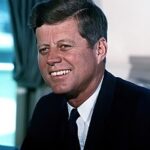President John F. Kennedy faced the ultimate test of leadership during the Cuban Missile Crisis. Soviet nuclear missiles in Cuba threatened American security. Kennedy’s response demonstrated exceptional diplomatic skill and strategic thinking.
The Cuban Missile Crisis Decision Process
Kennedy assembled ExComm, his executive committee of advisors, on October 16, 1962. Military leaders pushed for immediate airstrikes against Soviet installations. Kennedy rejected aggressive military action in favor of measured diplomacy. ⚠️ The president understood that hasty decisions could trigger nuclear war.
Strategic Diplomatic Approach
Kennedy implemented a naval blockade around Cuba instead of direct military strikes. Secret negotiations with Premier Khrushchev began through diplomatic channels. The president offered to remove Jupiter missiles from Turkey in exchange. 📊 This compromise satisfied Soviet security concerns while protecting American interests.
Cuban Missile Crisis Leadership Under Pressure
Kennedy maintained calm resolve despite enormous pressure from advisors and critics. His decision-making process emphasized careful deliberation over quick action. The president’s restraint prevented nuclear escalation during humanity’s most dangerous moment.
Impact:
The peaceful resolution of the Cuban Missile Crisis established Kennedy as one of history’s greatest crisis managers. Nuclear war was averted through skilled diplomacy rather than military force. 🌍 The outcome transformed international relations and Cold War dynamics permanently.
Immediate Cuban Missile Crisis Consequences
Soviet missiles were removed from Cuba by November 1962. American Jupiter missiles quietly left Turkey months later. The crisis established the Moscow-Washington hotline for direct communication. Both superpowers recognized the need for better crisis management protocols. Kennedy’s approval ratings soared to 74% following the successful resolution.
Long-term International Impact
The Cuban Missile Crisis resolution led to the Limited Nuclear Test Ban Treaty in 1963. 🔥 Both nations stepped back from nuclear brinksmanship in future conflicts. Diplomatic channels became the preferred method for resolving superpower disputes. The crisis demonstrated that nuclear weapons made traditional warfare obsolete.
Historical Significance and Legacy
Historians consistently rank Kennedy’s crisis management among presidential achievements. The decision-making process became a model for future administrations. 📈 Executive restraint and diplomatic engagement proved more effective than military aggression. Kennedy’s approach influenced decades of American foreign policy and nuclear strategy.
